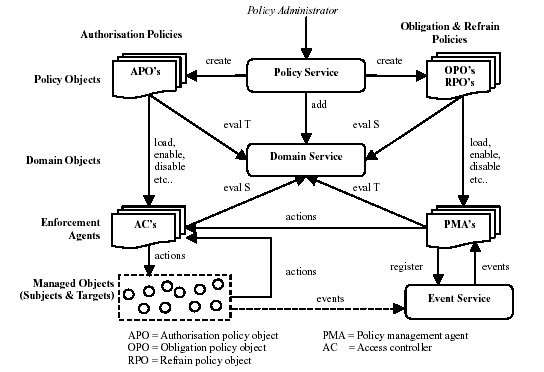| Morris Sloman | |
| Other academic members: | |
| Naranker Dulay | |
| Jeff Kramer | |
| Emil Lupu | |
| Jeff Magee | |
| Peter McBrien | |
| Julie McCann | |
Since the 1970's the group has had an international reputation in Distributed Systems with a strong emphasis on the development of tools and methodologies for the design, construction and management of distributed systems. Early work on programming and configuration environments for distributed systems emphasised the separation of component programming from the architectural language for configuring systems.The CONIC tools for dynamic configuration were used by a number of industrial and academic institutions. This evolved into the REGIS environment and then the DARWIN declarative architecture specification language, with funding from Industry, EU and EPSRC. The Philips Koala component model for consumer electronics software, based on Darwin is being used for constructing the software for their next generation of television sets. A dynamic configuration environment for distributed multimedia systems was developed based on the Rosette language with added support for interoperability with other distributed object platforms. A related thread of work was on reconfigurable protocol stacks to support a variety of interaction paradigms - RPCs, asynchronous events, multicast and multimedia. The MIDAS system supports a formal specification of properties of the protocol which can be analysed for correctness and can also be used to generate implementation code.

Overview of Policy Deployment Model. From "A Policy Deployment Model for the Ponder Language" by Dulay, Lupu, Sloman and Damianou.
The theme of component-based software engineering is also being taken up in the systems architecture and performance research carried out by the group. In particular componentisation of distributed web server architectures and the parameters required to create self-adapting systems to improve performance was investigated in the EPSRC funded Kendra and Patia projects. Further, fine-grained componentisation of the Operating System was examined in the Go! project demonstrating performance improvements of high orders of magnitude. Work continues on novel component-based database management system architectures as well as next-generation high performance information retrieval engines (Pliers project with City University), as well as performance of agent-based systems and systems software support for mobile and ubiquitous systems.
Management and security of distributed systems is another focus area for which the group is well-known internationally and has received funding from BT, Fujitsu Laboratories, and EPSRC. Policy Based Management separates the policies (rules defining the choices in behaviour of the system) from the distributed components managing the system. We have developed notations and tool support for specifying security and management policies. Policies can be grouped into roles relating to positions in the organisation and analysed for conflicts. This work has evolved into the Ponder declarative, object-oriented policy specification language. Current research activities focus on the methods and tools for specification of enterprise goals, trust relationships and service level agreements which can then be refined into implementable policy specifications.
Integration of mobile computing systems into complex enterprise information infrastructures is another research theme focusing on tools for configuring and managing mobile adaptive, context-aware systems. We have developed generic location services, which integrate information from a variety of sources. We are working on quality of service adaptation and the policies required for context-aware mobile systems in collaboration with Southampton University, Ordnance Survey and HP.
A general framework for the representation of distributed, heterogeneous database schemas, and transformation rules on those schema, has been developed in collaboration with Birkbeck College. The use of this framework to represent transformations within and between a number of data models, including ER, UML and Relational models has been investigated. Work on the use of the framework to translate and migrate data and queries between semantically heterogeneous databases has also been completed. The EPSRC AutoMed project has built a repository and associated Java API to store schemas and transformations using the framework.